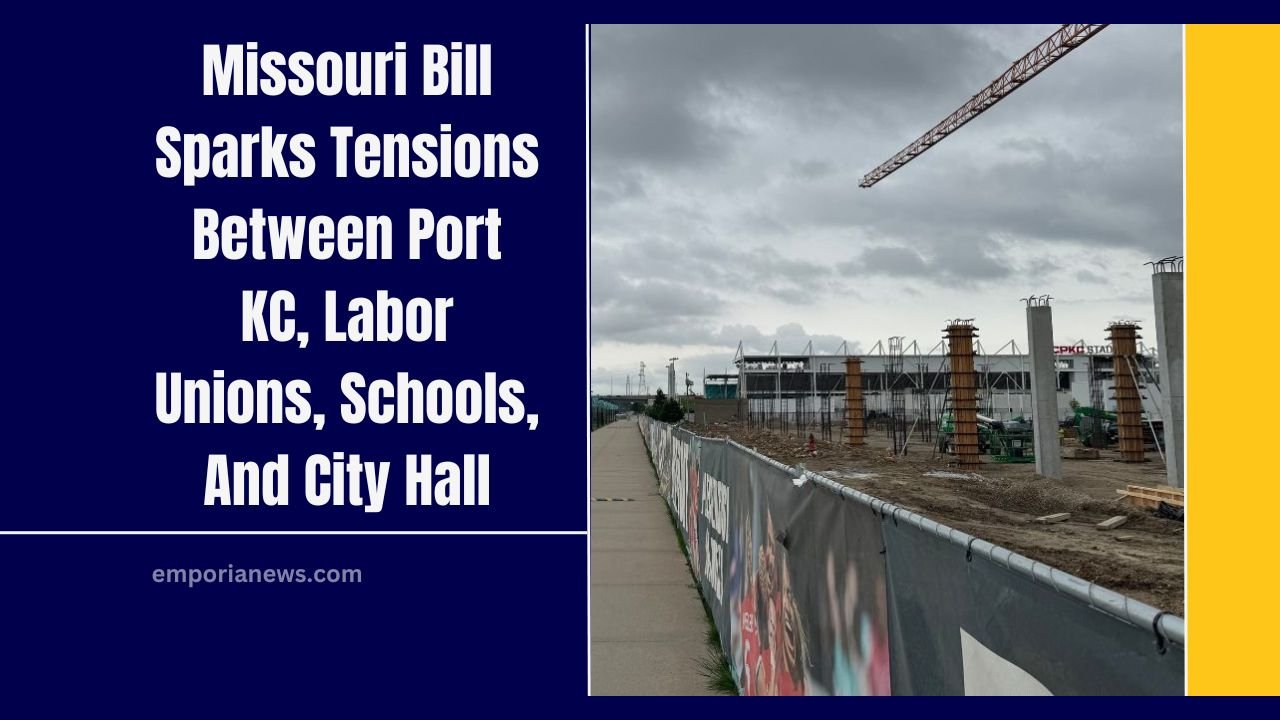A recent bill in the Missouri General Assembly has intensified conflicts between the Port Authority of Kansas City (Port KC) and key stakeholders, including labor unions, Kansas City Public Schools (KCPS), and City Hall.
While the bill aims to modernize port authority operations, a specific provision has raised concerns about potential circumvention of local development regulations.
Overview of the Missouri Port Authority Bill
Introduced by Rep. Mike Steinmeyer, the bill seeks to update the 1974 Port Authorities Act, granting port authorities enhanced capabilities such as:
- Leasing land in neighboring cities
- Hiring security personnel for port districts
- Establishing procedures for board member removal
The bill passed the Missouri House with a vote of 137-13.
Controversial Provision: Tax Incentive Authority
A contentious clause in the bill would allow port authorities to issue tax incentives under Missouri statutes Chapters 99, 100, and 353.
In Kansas City, these incentives are typically managed by the Economic Development Corporation (EDC), which adheres to city ordinances mandating:
- Affordable housing requirements
- Prevailing wage standards for construction workers
- Caps on tax abatements (e.g., a maximum of 75% property tax abatement)
Granting Port KC similar authority could enable developers to bypass these local regulations, leading to potential disparities in development standards.
Stakeholder Concerns
Economic Development Corporation (EDC):
Tracey Lewis, EDC President, expressed that the provision undermines local control over economic development policies, potentially allowing projects to proceed without adhering to city-imposed standards.
Kansas City Public Schools (KCPS):
KCPS officials worry that increased tax abatements could reduce funding for public schools, which are already facing infrastructure challenges and declining enrollment.
Labor Unions:
Representatives from labor unions, including the Greater Kansas City Building & Construction Trades Council, argue that Port KC’s practices may favor out-of-state contractors who do not pay prevailing wages, adversely affecting local workers.
Internal Disagreements Within Port KC
During a Port KC board meeting on April 29, Commissioner and City Councilman Kevin O’Neill criticized CEO Jon Stephens for supporting the bill without full board consensus.
Another commissioner, Morgan Said, emphasized the need for cohesive strategies that align with the city’s interests.
Proposed Amendment and Ongoing Issues
In response to the backlash, an amendment is being considered to exempt Kansas City and St. Louis port authorities from the controversial provision.
However, concerns persist regarding Port KC’s existing ability to issue tax incentives independently, potentially creating a loophole for developers to avoid city regulations.
Community Impact and Data Center Development
Port KC’s plan to issue $10 billion in bonds for a new data center campus, believed to be associated with Google, has faced community opposition.
Residents argue that such developments should include community benefit agreements to ensure local job creation and adequate funding for public services like schools.
EDC vs. Port KC Development Standards
| Criteria | Economic Development Corporation (EDC) | Port KC |
|---|---|---|
| Affordable Housing Requirement | Yes | Not mandatory |
| Prevailing Wage Enforcement | Yes | Not consistently enforced |
| Tax Abatement Cap | 75% | Up to 100% |
| Third-Party Financial Analysis | Required | Not consistently required |
| City Council Oversight | Yes | Limited |
The Missouri bill’s provision granting expanded tax incentive authority to port authorities has sparked significant debate in Kansas City.
While the proposed amendment may alleviate some concerns, the broader issue of Port KC’s autonomy in issuing tax incentives without adhering to city regulations remains unresolved.
Stakeholders continue to advocate for transparency, equitable development practices, and the protection of local interests.




